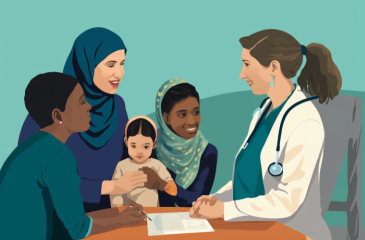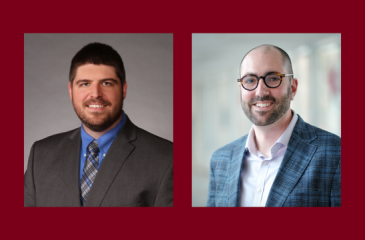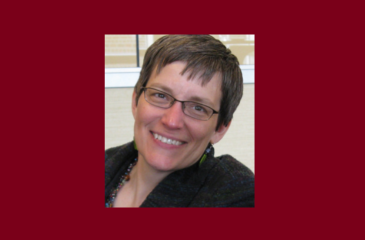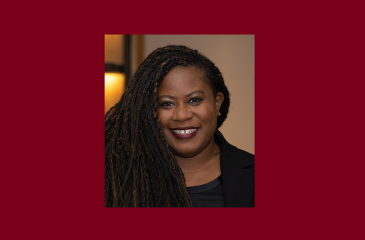This post is part of our "Bioethics in Focus" series featuring experts from the Center for Bioethics community.
Individuals who speak a Language other than English (LOE) disproportionately experience decreased access to care, decreased quality of care, and poorer health outcomes than those who speak English [1],[2]. LOE individuals, defined as those who do not speak English as their primary language and who have a limited ability to read, write, speak, or understand English, represent 8% of people living in the United States[3],[4]. Language barriers increase the risk of impairing patient decision-making autonomy and have the potential to lead to both physical and dignitary harm (associated with violation of the duty to respect persons).
Access to professional interpreter services has been shown to mitigate these inequities[9],[20]. There is ample evidence that the use of professional interpreters improves the quality of care for patients with LOE, resulting in higher patient satisfaction[5], fewer errors in communication[6], reduced disparities in utilization of services[7], and improved clinical outcomes[8] compared to informal only or no interpreter at all. Federal regulations require language access for LOE patients in hospitals receiving Medicaid or Children’s Health Insurance Program (CHIP) funding[9]. Despite this regulation, significant multi-level barriers to accessing quality medical interpreters exist[10],[11]. According to the US Bureau of Labor Statistics, there are 4 unfilled positions for every one of the 17,000 employed professional medical interpreters[12]. Lack of reimbursement to health systems for providing medical interpreter services impacts access by requiring systems to weigh professional interpreter services against other competing financial demands[13] . This equates to between 30-40% of United States hospitals offering no language services[14] [15].
To overcome these system barriers, many LOE patients utilize alternative methods for healthcare communication, such as informal interpreters (bilingual family and friends). The use of informal interpreters in healthcare has historically been discouraged due to lack of familiarity with medical terminology, the risk of misrepresenting clinical information, translation errors, or a tendency to summarize or omit data[14] [15]. However, data suggest that even when a professional interpreter is available, some patients prefer to use informal interpreters[16] [17] [18] [19]. Our recent exploratory work in ethnically diverse communities (Somali, Hmong, and Latin American) found that parents of children with serious illness frequently utilized informal interpreters (publication forthcoming). This was due to both a lack of confidence in the skills of the professional interpreters and a preference for a trusted person to ensure understanding of information in high stakes decision-making, such as organ transplant or decisions to withdraw life-sustaining treatment in their children.
Preference for a trusted person to act as an informal interpreter is not surprising given LOE patient experiences with discrimination, bias, and powerlessness in their everyday lives as well as within the healthcare system. Additionally, within certain communities, it is part of the familial obligation to participate in and advocate for family members in healthcare settings. Professional interpreters may feel pressured to limit themselves to passive, neutral relay of information. Conversely, informal interpreters, due to their dual-role status, can be valuable to assist in the exchange of medical information, patient self-advocacy, and decision-making.
In recent years, researchers have proposed that incorporating informal interpreters in patient care is essential to equitable healthcare delivery and empowers marginalized communities[20]. However, there is a lack of knowledge about how to do this effectively to both ensure adequate communication while also respecting cultural differences in healthcare interactions. Our research team – which includes affiliate faculty member Elaine Hsieh, Chair of Communication Studies at the University of Minnesota, and the SoLaHmo Partnership for Health and Wellness – is seeking to develop a framework to facilitate the use of informal interpreters in the clinical setting. Reimagining the role of informal interpreters in the healthcare setting can reduce health inequities by improving language access.
REFERENCES
[1] Lu, Tianyi and Rebecca Meyerson. (2020). “Disparities in Health Insurance Coverage and Access to Care by English Language Proficiency in the USA, 2006–2016.” Journal of General Internal Medicine, 35(2).
[2] Proctor, Kimberly, Shondelle Wilson-Frederick and Samuel Haffer. (2018). “The Limited English Proficient Population: Describing Medicare, Medicaid, and Dual Beneficiaries.” Health Equity, 2(1).
[3] Office of Civil Rights. (2013, July 26). Guidance to Federal Financial Assistance Recipients Regarding Title VI Prohibition Against National Origin Discrimination Affecting Limited English Proficient Persons. United States Department of Health and Human Services.
[4] https://www.census.gov/library/publications/2022/acs/acs-50.html. Accessed August 3, 2023.
[5] Yeheskel, A., & Rawal, S. (2019). Exploring the ‘patient experience of individuals with limited English proficiency: A scoping review. Journal of immigrant and minority health, 21(4), 853-878.
[6] Flores G, Laws MB, Mayo SJ, et al. Errors in medical interpretation and their potential clinical consequences in pediatric encounters. Pediatrics. 2003;11(1):16–14.
[7] Jacobs, E. A., Lauderdale, D. S., Meltzer, D., Shorey, J. M., Levinson, W.,Thisted, R. A. (2001). Impact of interpreter services on delivery of health care to limited-English-proficient patients. Journal of general internal medicine, 16, 468-474.
[8] Karliner, L. S., Jacobs, E. A., Chen, A. H., & Mutha, S. (2007). Do professional interpreters improve clinical care for patients with limited English proficiency? A systematic review of the literature. Health services research, 42(2), 727-754.
[9] Hayashi D. Guidance memorandum. January 29, 1998. Title VI Prohibition Against National Origin Discrimination—Persons With Limited-English Proficiency. Washington, DC: US Department of Health & Human Services; 1998.
[10] Schiaffino, M. K., Al-Amin, M., & Schumacher, J. R. (2014). Predictors of language service availability in US hospitals. International Journal of Health Policy and Management, 3(5), 259.
[11] Schiaffino, M. K., Nara, A., & Mao, L. (2016). Language services in hospitals vary by ownership and location. Health Affairs, 35(8), 1399-1403.
[12] https://www.bls.gov/ooh/media-and-communication/interpreters-and-translators.htm. Accessed August 16, 2023.
[13] https://www.medicaid.gov/medicaid/financial-management/medicaid-administrative-claiming/translation-and-interpretation-services/index.html. Accessed August 18, 2023.
[14] Elderkin-Thompson V, Cohen Silver R, Waitzkin H. When nurses double as interpreters: a study of Spanish speaking patients in a US primary care setting. Soc Sci Med. 2001;52(9):1343–1358.
[15] Flores, G., Laws, M. B., Mayo, S. J., Zuckerman, B., Abreu, M., Medina, L., & Hardt, E. J. (2003). Errors in medical interpretation and their potential clinical consequences in pediatric encounters. Pediatrics, 111(1), 6-14.
[16] Greenhalgh, T., Robb, N., & Scambler, G. (2006). Communicative and strategic action in interpreted consultations in primary health care: a Habermasian perspective. Social science & medicine (1982), 63(5),1170–1187.
[17] Vandervort EB, Melkus D. Linguistic services in ambulatory clinics. J Transcult Nurs. 2003;14(4):358– 366.
[18] de Moissac, D., & Bowen, S. (2019). Impact of Language Barriers on Quality of Care and Patient Safety for Official Language Minority Francophones in Canada. Journal of patient experience, 6(1), 24–32.
[19] Brooks, K., Stifani, B., Batlle, H. R., Nunez, M. A., Matthew Erlich, M. A., Phil, M., & Joseph Diaz, M. D. (2016). Patient perspectives on the need for and barriers to professional medical interpretation. Rhode Island Medical Journal, 99(1), 30.
[20] Pollock, S. (2020). More than words can say: Why health and social care policy makers should reconsider their position on informal interpreters. Critical Social Policy, 41(1), 128-147.
Author
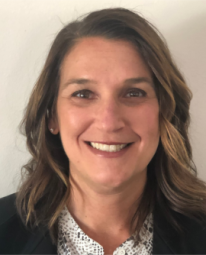
Jennifer Needle, MD, MPH, HEC-C, is an Associate Professor in the Center for Bioethics and Department of Pediatrics at the University of Minnesota. She earned her MD from Howard University in Washington DC, and a Masters in Public Health in Epidemiology from Emory University Rollins School of Public Health. Dr. Needle completed her residency in Internal Medicine and Pediatrics and fellowship in Pediatric Critical Care at the University Hospitals of Cleveland/Rainbow Babies and Children's Hospital in Cleveland, Ohio. She completed her fellowship in Biomedical Ethics at the Center for Ethics in Health Care at Oregon Health & Science University in Portland, Oregon.
Dr. Needle joined the faculty at the University of Minnesota in 2013 after six years as an Assistant Professor for the Department of Pediatrics, Division of Critical Care, at Oregon Health & Science University. She is board certified by the American Board of Pediatrics in Critical Care and the American Board of Pediatrics. She has developed a national reputation as a leading early investigator in the field of pediatric palliative care and advance care planning. She has been a PI or co-I on grants from the National Institutes of Health and the American Cancer Society studying Adolescent and Young Adult Advance Care Planning in Cancer and Bone Marrow Transplant. Her work has been published in Critical Care Medicine, Pediatric Critical Care Medicine, Palliative Medicine, and The Journal of Clinical Ethics. Her current academic focus is on reducing health disparities in pediatric palliative care. She is collaborating with the SoLaHmo Partnership for Health and Wellness to utilize a community-based participatory research approach to understand barriers and facilitators to pediatric palliative care in the Somali, Latino/a/x, and Hmong communities. Dr. Needle serves as the co-chair of the University of Minnesota Medical Center Ethics Committee, and co-lead for the clinical ethics consultation service for MHealth Fairview system hospitals.
